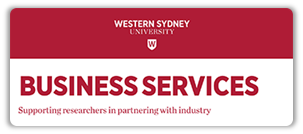Australia’s national research evaluation framework, Excellence in Research for Australia (ERA), identifies and promotes excellence across the full spectrum of research activity in Australia’s higher education institutions. This evaluation framework gives government, industry, business and the wider community assurance of the excellence of research conducted in Australian higher education institutions.
As well as this high level evaluation, individual researchers can source metrics and indicators of impact which help to track the contribution their research makes to academia and society; and to identify suitable publishing outlets.
Metrics can be used to strengthen future funding applications and academic promotion opportunities by demonstrating the value of your work; and to develop a publishing strategy by evaluating the citation strength and potential of specific journals.
MAKE SURE YOUR ARTICLE IS DISCOVERABLE
- Create more opportunities for others to recognise and discover your work by creating a Open Researcher and Contributor ID (ORCID) during submission so your work will be linked back to you and manage your staff profile.
- ORCID is a unique identifier for individuals to use with their name as they engage in research, scholarship, and innovation activities.
- Optimise your article’s search engine discoverability: Include key words in your abstract and article title. For more tips, view this Wiley PDF guide.
- Use the right keywords throughout your article, but make sure that they flow naturally and in a contextual way. Want more help choosing keywords?
- Here are 6 tips for selecting more effective keywords to get your research seen and shared.
- Create relevant and high-quality illustrations. You can also consider using the Academic Illustration service where graphic design specialists will turn your ideas into high quality figures and illustrations for your article – helping your research findings stand out.
- Use a consistent name across sites and add your photo for a professional first impression.
- Provide links to your other profiles wherever possible.
- Refer to the Library FAQs for details about managing your research Identity and author profiles
- The Australian Research Council has recently implemented additional functionality into their RMS, which allows users to add research output data from their ORCID profile directly into their Discovery Projects (DP) scheme 2020 application forms.
- Scopus: Do an author search for your name. If there are multiple profiles or other errors, use the Author wizard to make corrections.
- Google Scholar provides a simple way to broadly search for scholarly literature. Google Scholar Citations provide a simple way for authors to keep track of citations to their articles. Make your profile public, so that it appears in Google Scholar results when people search for your name or publications.
ENGAGEMENT
Impact and Engagement go hand in hand. Meaningful engagement is based on shared values, which become shared language and understandings.
- Ideally, engagement with stakeholders and research end-users starts before a research project is formalised and continues during and after it.
- Communication activities are key to effective engagement. The most important aspects of a good communication strategy are to know who you want to reach, how to reach them, and what you want to communicate.
- With the target audience in mind, think:
What communication channels are most appropriate?
Consider how your target audience prefers to receive information; experiment with different media to find the most effective channels.
How will this research impact their everyday lives and wellbeing?
Consider these aspects when crafting the communication, ensuring the wording is accessible and understandable; avoid overloading with information.
What will entice them to engage?
- Consider why the research would be important to them; what's the long-term gain? At this point the focus is not about enhancing your research, but getting stakeholders/communities to understand what the research is about.
- Formal agreements are important at a certain point, but impactful collaboration is far from being transactional or contractual. In the initial stages, it is relationship building that is key.
- Delivering impactful research outcomes is a team effort - there might be one chief investigator, but it's often a team of researchers and several non-university stakeholders working together.
Resources
- Step by step guide to planning engagement activities by Wellcome Trust.
- Public Engagement Evaluation Toolkit by Queen Mary University of London.
Social Media
Researchers are increasingly utilising social media and the Internet to raise awareness of their profile and research in the international scholarly and non-scholarly communities. It is important to select and maintain the most appropriate outlets for your discipline. Where are your peers? Join relevant communities of practice and build relationships with potential collaborators.
Ensure all media and social media activity adheres to the University’s Media, Social Media and Public Commentary Policy and Code of Conduct.
Review Research Impact for resources and engagement activities.
PhD industry placements
Australian Postgraduate Research Intern (APR.Intern) connects PhD students with industry through short-term internships. These internships provide pathways for PhD students to expand research collaborations with industry. APR.Intern is Australia’s only not-for-profit PhD internship program that spans across all sectors, disciplines and universities. Providing hands-on experience in an industry setting, these 3 to 5-month internships open-up opportunities for PhD students to fast-track their careers, ensure greater research linkage, and create long term professional relationships. Bridging the gap between industry and academia, these industry internships create a level playing field for all PhD students — in particular, women and other underrepresented groups in STEM (science, technology, engineering and mathematics) including regional and Indigenous and disadvantages students.
ENGAGEMENT STRATEGIES
Metrics Toolkit was developed by a group of information professionals to help researchers and evaluators understand and use metrics responsibly. Explore and choose metrics for a range of situations. |
MyRI (Measuring your Research Impact) is a self-paced tutorial that explains the main metrics tools in detail, how to track your research impact, and outlines journal citation and ranking methods. |
Fast Track Impact provides step-by-step, practical advice for writing impact statements; including specific strategies on how to demonstrate impact for ARC and writing your track record for NHMRC grant applications. Use their impact tools and templates; or read examples of well written statements, along with reviewer feedback and evaluation. |
How to track the impact of research data with metrics guide provides useful information on the impact of research data with metrics. |
|
INDUSTRY PARTNERSHIPS
Western Sydney University provides several business development opportunities for staff to use to build their industry partnerships. The Business Services team connects and supports staff in developing business, government, and community linkages; and assists in identifying external partnership opportunities for commercial research, consultancy and commercialisation. They work together with academics to nurture partnerships ensuring long term benefits for both the partner and academic.
MEDIA AND PUBLIC RELATIONS AT WESTERN
Western Sydney University's Media Unit helps local, national and international media cover stories relating to the University. The team has expertise in news reporting, television production, radio program production, magazine writing and public relations. University staff should contact the Media Unit for assistance with all media management issues, including writing and distributing media releases, developing targeted communication plans and liaising with the media. If you've got a story or a story idea you'd like to discuss, you can email the Media Unit: media@westernsydney.edu.au.

